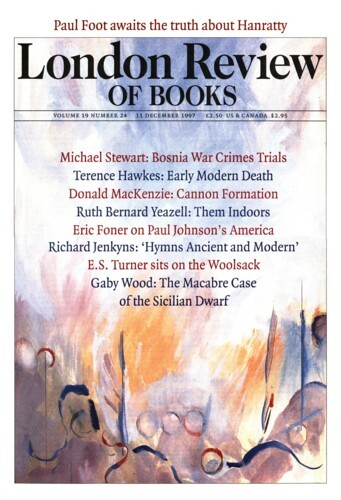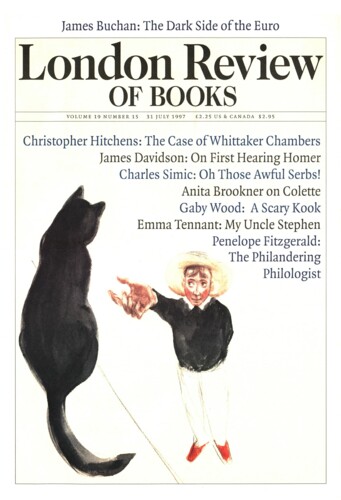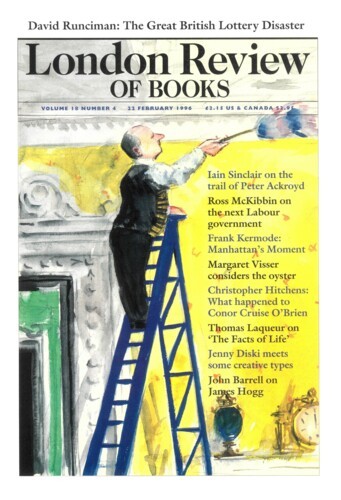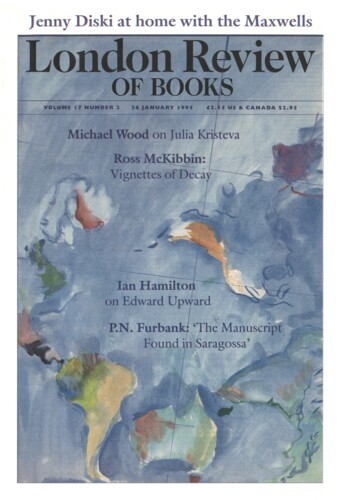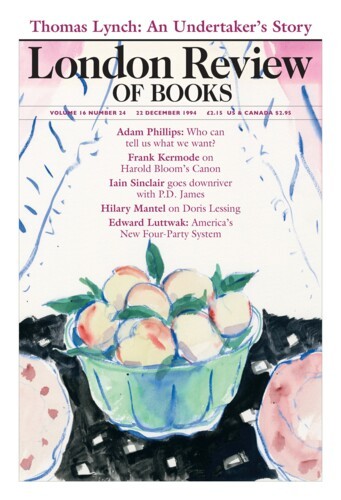On the Way in which Tragedy ‘Openeth up the Greatest Wounds and Showeth forth the Ulcers that are Covered with Tissue’
Terence Hawkes, 11 December 1997
Hamlet calls death the ‘undiscovered country’, but perhaps the deftness of that description masks a fatal insouciance. True, it isn’t really possible for us to ‘discover’ extinction in the sense of gaining actual experience of the phenomenon. But, as Michael Neill points out, human beings do imagine dying and in the process they inevitably invent a notion of death capable of matching their presuppositions. To that extent, death could be said to be something that each society discovers for itself. As a result, nobody just dies. The icy hand may descend everywhere and indiscriminately, but it does so in specific cultural and historical contexts. In all communities, a high degree of political and economic mediation invariably attends the event which is usually also intensely ritualised. The result, as Neill compellingly argues, is that though all animals die, only human beings ‘suffer death’ in the form of a subjugation to imperatives moulded by their own collective imaginations. And if death is culturally determined, it is also historically specific and thus altogether a more complicated matter than Hamlet allows. Certainly, the Renaissance ‘crisis’ about death, which is at the centre of Neill’s concern, is a quarry worthy of the spry, meticulous scholarship he brings to its pursuit. Webster wasn’t the only Early Modern British dramatist to be much possessed by the topic. In fact, a good deal of Renaissance tragedy could be seen as an instrument by which that culture set out to discover and map new meaning for death.‘
